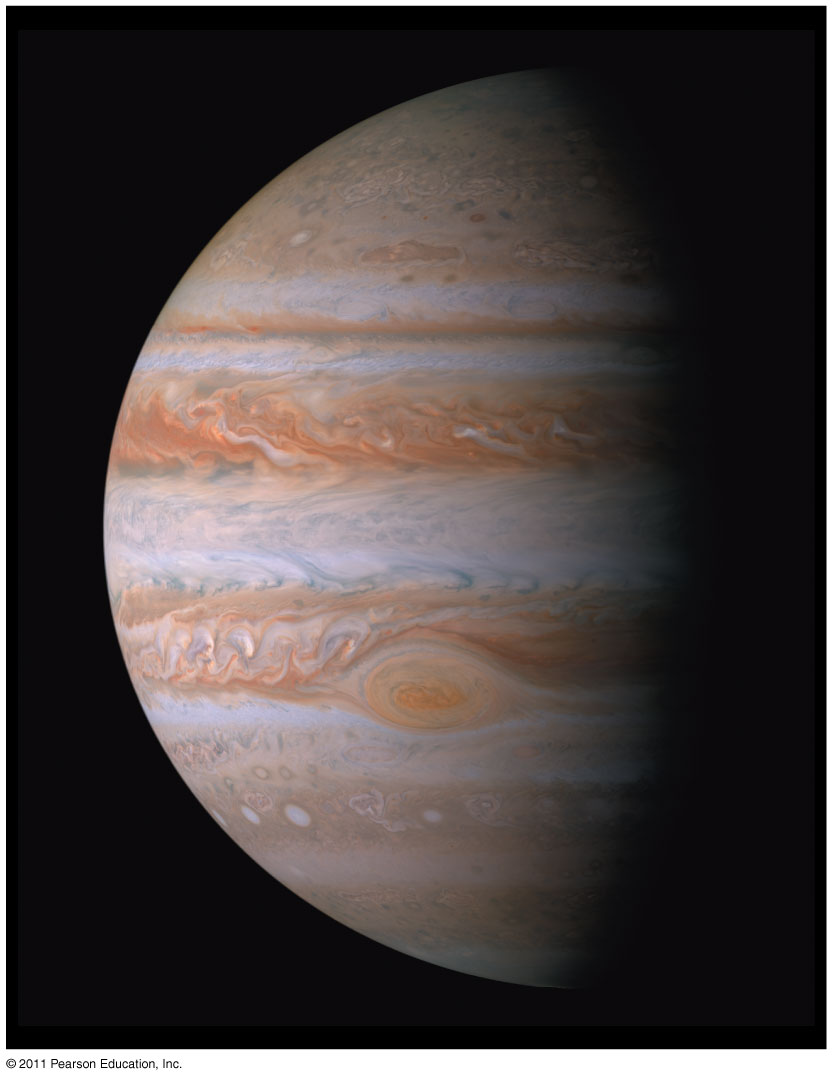 pdf version of the syllabus
pdf version of the syllabus
Astronomy 121 introduces students to the structure and evolution of the Solar System. The course begins with an introduction to the early
discoveries of the structure and dynamics of the Solar System.
The course includes an introduction to the physics required for
this study.
The terrestrial and jovian planets are studied and contrasted.
Pluto's relationship to other objects is covered.
The course will review the theory of formation of the Solar System
and the evidence for it.
The search for extrasolar planets and extraterrestrial
life is discussed.
http://pages.uoregon.edu/jimbrau/astr121
Instructor:
Prof. Jim Brau
Telephone: (541) 346-4766
414B Willamette (enter through 414 Willamette)
e-mail: jimbrau@uoregon.edu
Class HoursTue 10:00 am - 11:50 am |
Office HoursMon 11-11:30 am |
TextAstronomy Today |
Course Outline for Astronomy 121 (Tentative - 2/4/11)
Date
Chapter
Topic
3/29
3/31
4/5
4/7
4/12
4/14
Introduction/Chapter 2
Chapter 6
Chapters 7 & 8
Chapter 8
Chapters 2, 6, 7, & 8
Chapters 2, 6, 7, & 8
Introduction &
the Copernican Revolution
The Solar System
The Earth &
Moon
The Moon & Mercury
Review
Exam #1
4/19
4/21
4/26
4/28
5/3
Chapter 9
Chapter 10
Chapter 11
Chapters 9, 10, & 11
Chapters 9, 10, & 11
Venus
Mars
Jupiter
Review
Exam #2
5/5
5/10
5/12
5/17
Chapter 12
Chapter 13
Chapters 12 & 13
Chapters 12 & 13
Saturn
Uranus & Neptune
Review
Exam #3
5/19
Final project prep period
No class
5/24
5/26
5/31
6/2
Chapter 14
Chapter 15
Chapter 28
Course Review
Solar System Debris
course projects due
The Formation of Planetary Systems
Life in the Universe
Review
6/10, 8 am
Comprehensive
Final Exam
Reading Assignments
Students should read the material before the lecture
in order to benefit
most from the discussions in class.
| Date | Chapter | Topic |
| 3/29 3/31 4/5 4/7 4/12 4/14 |
Introduction/Chapter 2
Chapter 6 Chapters 7 & 8 Chapter 8 Chapters 2, 6, 7, & 8 Chapters 2, 6, 7, & 8 |
Introduction &
the Copernican Revolution
The Solar System The Earth & Moon The Moon & Mercury Review Exam #1 |
| 4/19 4/21 4/26 4/28 5/3 |
Chapter 9 Chapter 10 Chapter 11 Chapters 9, 10, & 11 Chapters 9, 10, & 11 |
Venus Mars Jupiter Review Exam #2 |
| 5/5 5/10 5/12 5/17 |
Chapter 12 Chapter 13 Chapters 12 & 13 Chapters 12 & 13 |
Saturn Uranus & Neptune Review Exam #3 |
| 5/19 |
Final project prep period |
No class |
| 5/24 5/26 5/31 6/2 |
Chapter 14 Chapter 15 Chapter 28 Course Review |
Solar System Debris course projects due The Formation of Planetary Systems Life in the Universe Review |
| 6/10, 8 am |
Comprehensive |
Final Exam |
|
|
- see also the list of
Recommended Homework.
Exams
Tentative Exam Schedule (Caution: dates may change and will be set during term. )
|
Exams - reviews, answers, and grades | ||||||
Astronomy Course Project:
An astronomy course project is required of each student. The project might be a written report on a topic of interest, a report of an observational exercise, a poster on a topic, or the design of an astronomical instrument, to name a few possibilities. For more information refer to the project web page.
Grading:
Three midterm exams will be given, with 90% course grade based equally on the two highest midterm scores and the final exam score. So, the breakdown for the course grade isThere will be no make-up exams. A passing score on the final exam and on the course project are required to pass the course. One midterm exam is optional, as long as two midterm exams are passed. Class attendance is mandatory as the exams will contain material from the lectures as well as the textbook. There will also be occasional short quizzes given in class for extra credit. Students must be able to calculate numerical problems using fundamental algebra to earn an A in the course.
Two best midterm exams 60% (30% each) Course project 10% Final exam 30%
Academic Dishonesty:
Academic dishonesty will not be tolerated. This includes any form of cheating, plagiarism, or fabrication. All work must be your own, produced exclusively for this course. For additional information on plagiarism, refer to the UO Library information. Academic dishonesty can result in receipt of a failing grade on the specific assignment or even receiving an F in the course. Additional information on academic conduct is available from Student Life. Every violation will be dealt with seriously and noted on student disciplinary records.


